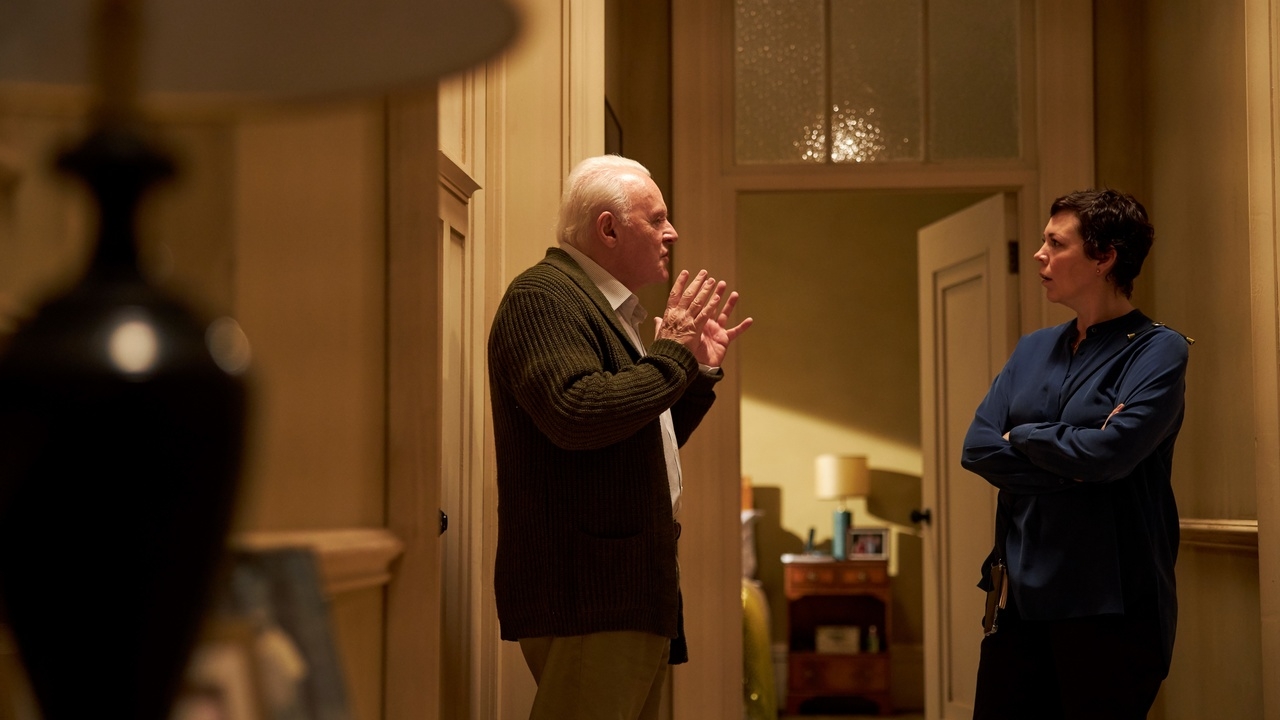In his stage to screen adaptation, “The Father” writer and director Florian Zeller gets inside the mind of dementia victims in a way I never thought possible. Obviously, anybody who has ever had a loved one afflicted with memory loss experiences heartbreak and frustration with what they are going through, but that pain is still one step removed from the direct experience of someone with dementia. “The Father” attempts to narrow this separation and puts viewers right in the shoes of a dementia victim.
Nobody without the disease can know for sure what that disease is like, but Zeller does an admirable job trying to tap into that living nightmare, and he does depict it as a living nightmare. Days do not begin or end; they merely run together. Familiar faces are liable to change from day to day. Information is released to the audience in a very clever way that further enhances the feeling of memory loss. Huge, life-defining details of the main character’s life are either hidden for much of the film or presented with conflicting evidence. For example, main character Anthony and his daughter have different memories of what Anthony did for a living.
Of course, none of this would work whatsoever without an excellent lead performance. Luckily Anthony Hopkins is more than up to the job in what I feel comfortable calling his best performance since Hannibal Lecter. The complete vulnerability Hopkins has to show in this role to make it work is a lot to ask. At one point he literally cries for his mommy. Yet I never for an instant questioned the believability of his performance. In that particular scene, the knockout punch for anyone who had not shed a tear up to then, I legitimately saw a scared little British boy in the body of an 83-year-old man. It was terrifying. This script is brilliant, but only an actor of Hopkins’s caliber can really juice it for all its worth.
While “The Father” puts us in Anthony’s perspective, it does not neglect to show the excruciating effects dementia has on the victim’s family. Olivia Colman plays Anthony’s daughter, Anne. She is outstanding as usual. Anne has to make difficult decisions about her father’s care as she struggles to stay on top of everything. The dynamic and history between these two makes things even more interesting. As it becomes clear that Anthony is often verbally abusive and even outright claims to favor his other children, Anne’s motivations become more complex. At the same time, it is clear Anthony appreciates everything Anne does for him.
I have had two grandparents pass away after long battles with dementia, but the one I was closest with was my Nana. I didn’t live very close, but I was able to observe how the disease affected her when I visited. I also saw how the disease affected my mom and other family members. The characters in this movie are very different from my Nana and my mom, but I still saw a connection there. It broke my heart to have even the smallest taste of what Nana must have gone through.
My personal background with dementia added to my experience with “The Father.” However, I do not think every viewer needs to have a similar experience in order to get anything out of the film. “The Father” is a deeply affecting and intensely empathetic film. It is hard to sit through, but it is more than worth engaging with.











Be First to Comment